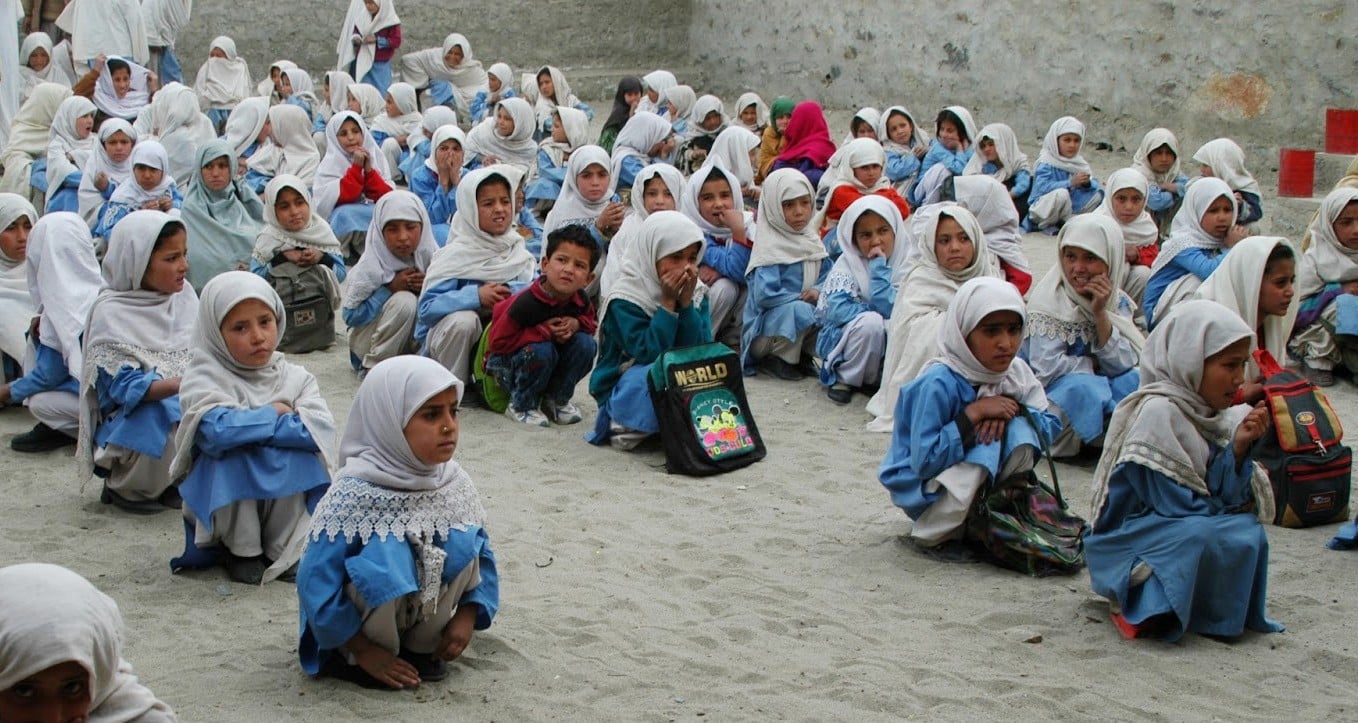
More than half of Sindh's children being out of school speak volumes for the performance of liberal PPP stalwarts in Sindh

One wonders why education figures remain dwindling in rural Sindh, a stronghold of the liberal Pakistan People’s Party, which hates the Taliban for opposing critical thinking and secular education.
More than half of Sindh’s children remain out of school, states a recent report on out of school children titled "25 million broken promises". When it comes to sending its children to school, even terrorism-hit Khyber Pakhtunkhwa does better. Sixty six per cent children in KP attend school.
In their election manifesto for this term, the PPP had promised to achieve universal primary education. It vowed to declare an education emergency in the province. For a party which has been in power for decades, educating its largely rural vote bank should have been a priority. That does not seem the case.
At district Dadu, hometown of former education minister Pir Mazhar ul Haq, 36 per cent children remain out of school, the report states. His son, Pir Mujeeb ul Haq, a sitting MPA has turned a blind eye to education woes of the district, say local education activists.
In a village there at Fareedabad, residents held a hunger strike outside the press club for two months, to protest the closure of primary school which educated 100 boys and girls. "No one came to visit us during the protest," said Bahadur, an education activist of the area.
According to a September 5 report, in the Daily Kaawish, a vocal Sindhi language newspaper, 40 schools in union council Sawro, have been converted into godowns, cattle farms and guesthouses.
A September 9 report in the Daily Jeejal reports a protest held at Johi in district Dadu where villagers complained of a school being forcibly taken by influential landlords.
At Larkana, the land of Bhuttos where the liberal Benazir and her charming father Zulfiqar Ali Bhutto, rest inside a marble mausoleum, 34.6 per cent children remain out of school.
Close to the mausoleum, at a high school three grade six students fainted due to the absence of ceiling fans, state a September 2 newspaper report. The schools director admits there are 581 closed schools in the district.
In September, Sindhi language newspapers reported at least two incidents where a feudal landlord locked a school building in the district. At Khairpur, where the three-time Chief Minister Qaim Ali Shah has his ancestral palatial house, 42.9 children remain out of school.
Facilities in functional schools are crumbling. Three students were rushed to the hospital on September 9 when the roof of a school building collapsed, state newspaper reports.
For the last 20 years, 16 schools in Taluka Ghambat remain closed while its teachers draw salaries, states another newspaper report.
For the last 12 years, a high school in Thari Meerwah has been closed and converted into a cattle farm by none other than its headmaster, an influential landlord, states a news story published in September.
At Thatta, hometown of the clever Owais Muzaffar, 66 per cent children are out of school. The district also tops the list of closed schools--729 according to a survey by the Education Department. Add ghost schools to the figure and it balloons to 897, according to a survey by the Supreme Court.
According to Sindhi language newspapers, at Taluka Ghora Bari, hundreds of schools have been converted into guesthouses and cattle farms, forcing thousands of children to graze cattle for a living.
Sindh became the first to turn article 25A--the right to free and compulsory education for ages five and 16--into a legislation. But it needs more than mere words on a paper to fulfill its promise.
The government does not have a direction. Like an ostrich which hides it head in a hole, it seems in denial. "There are not that many children out of school in Sindh but yes there are closed schools," said Khursheed Ahmed Junejo, chairman standing committee on school education Sindh.
"We intend to open all closed schools this year. We will ask not-for-profit organisations to adopt some. We will also penalise parents who fail to send their children to school," he said.
In his speech at the historic October 21 rally in Karachi, Bilawal Bhutto Zardari, the young party chairman, spoke strongly against extremism and suicide bombers. He failed to address the pressing issue closer home--the utter state of helplessness of more than half of Sindh’s children who have no means to move up the socio-economic ladder.
"Every child out of school is a missed opportunity," said Firuza Pastakia, the study’s co-author. "What they need is political commitment to tackle this problem. Politicians are good at making promises. Our children do not need more promises. They need education. And they need it now!"
Forget focus on the quality of what is taught inside a classroom, Sindh’s foremost problem is to get its children inside a school.